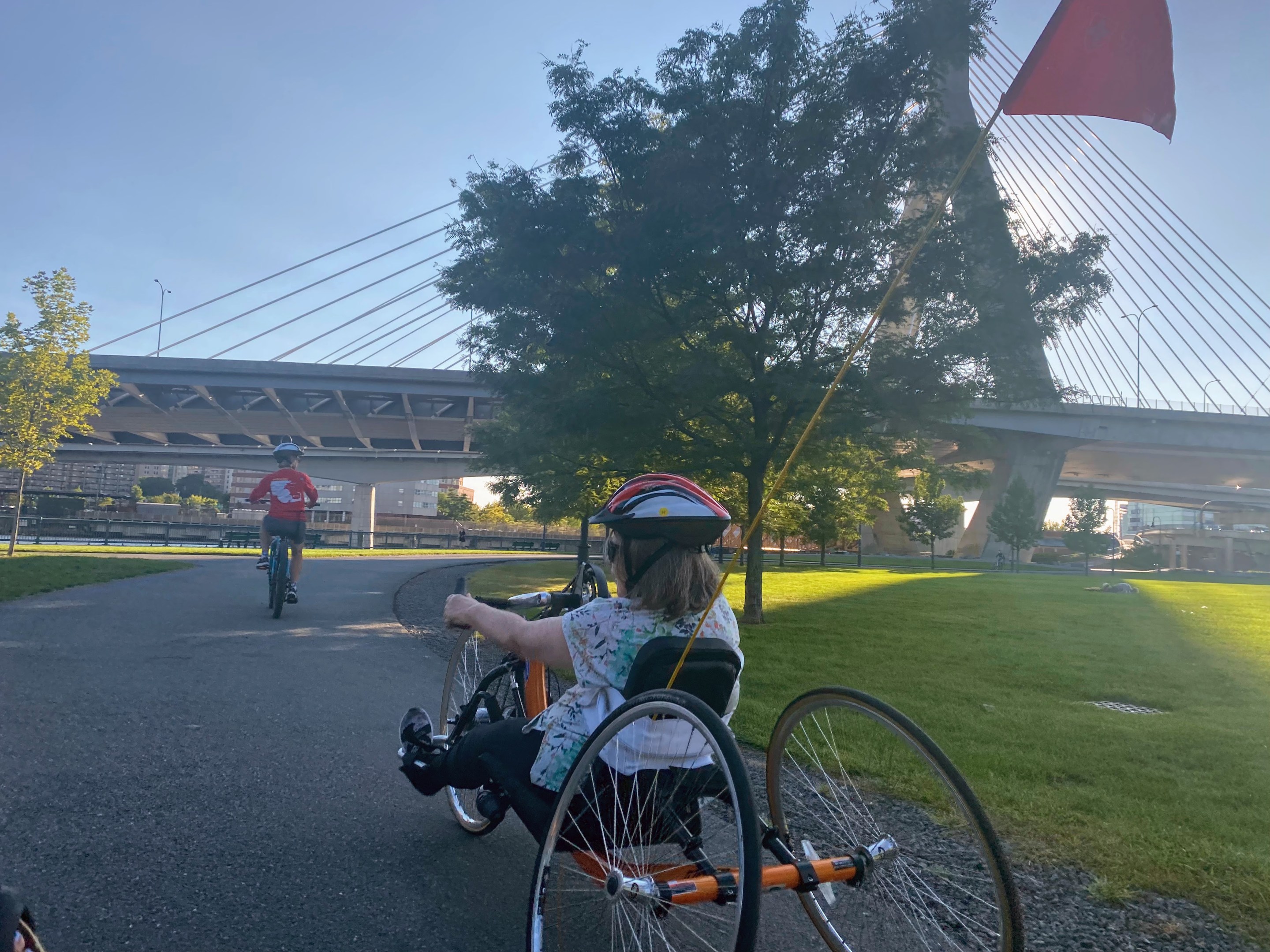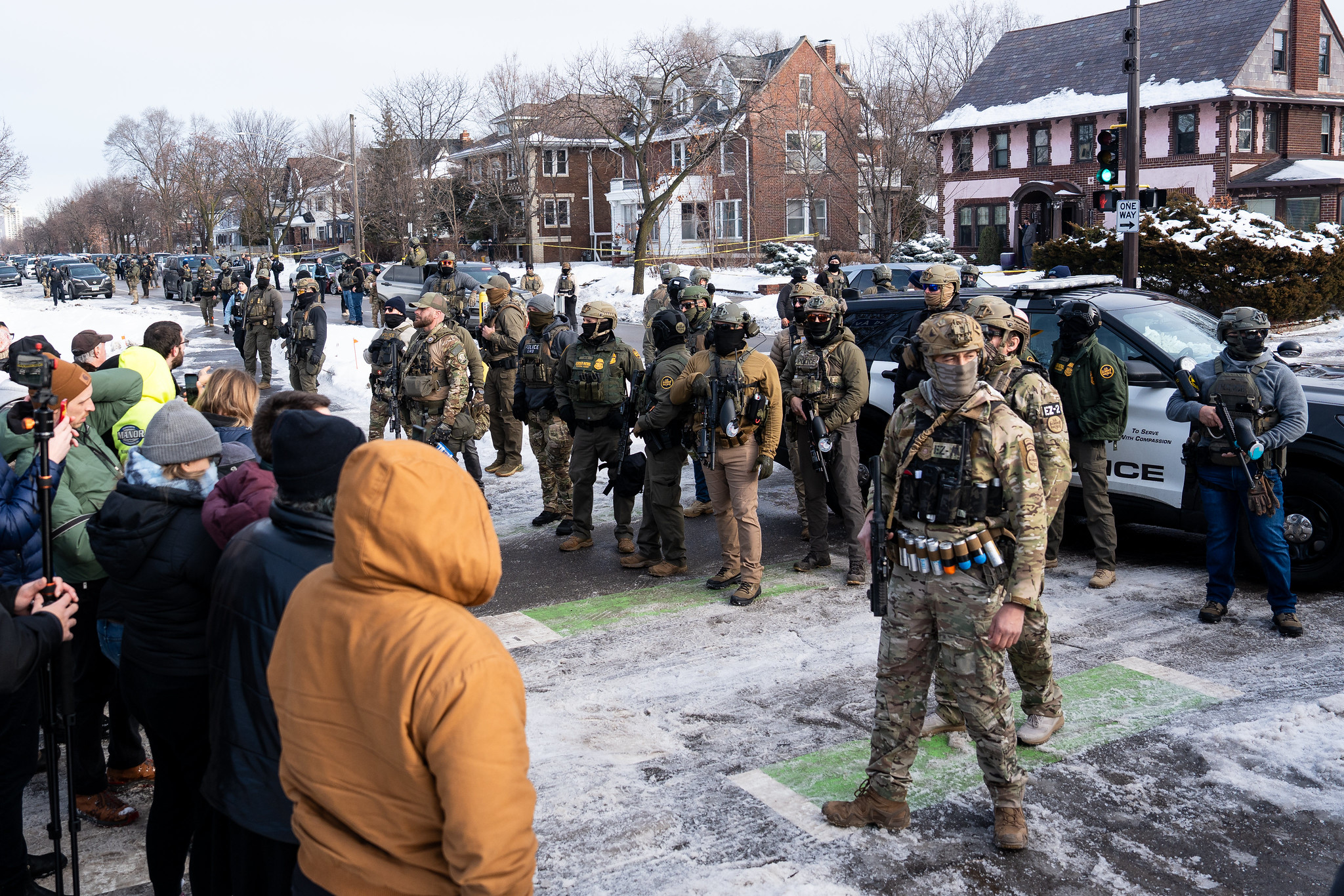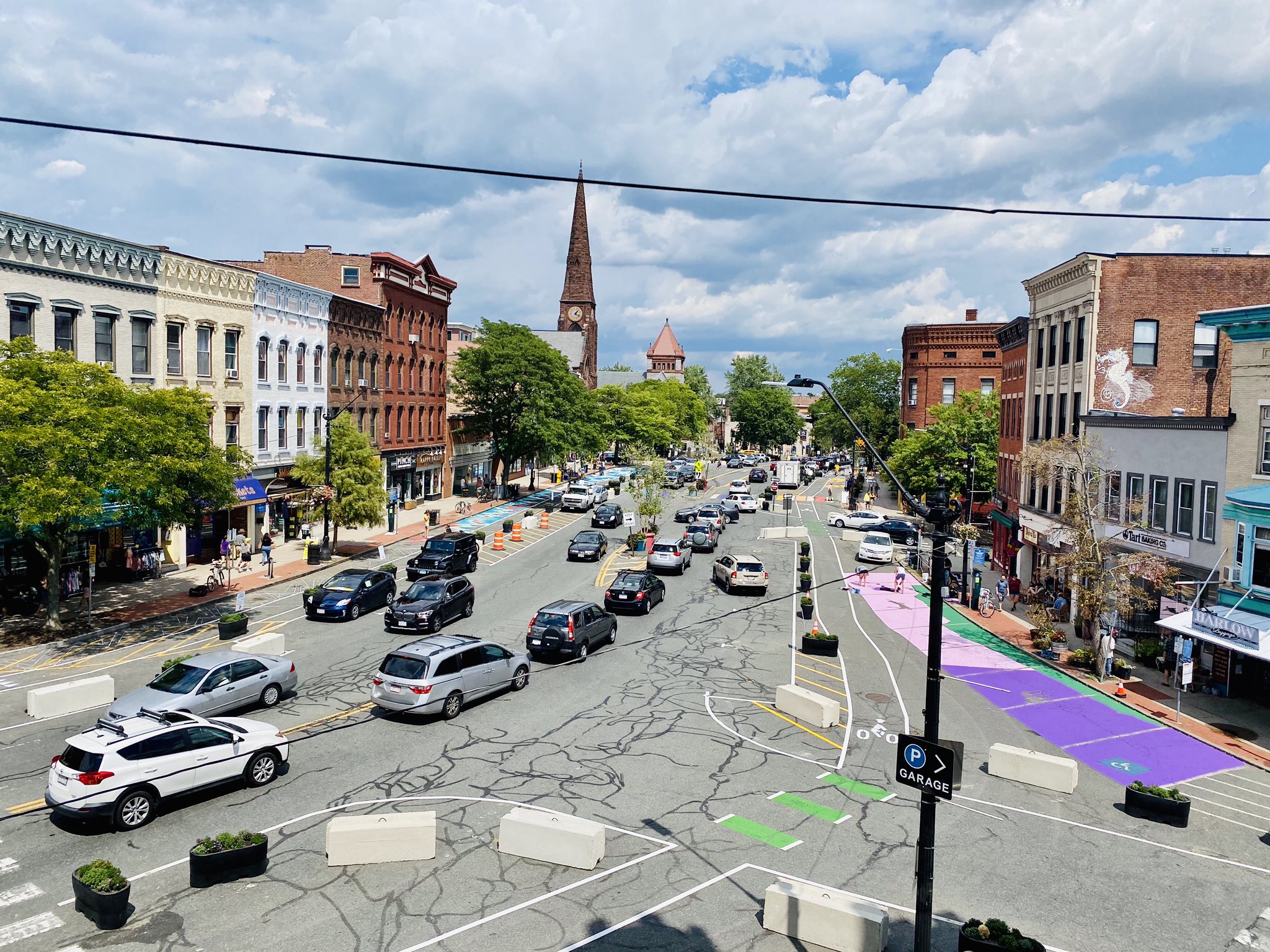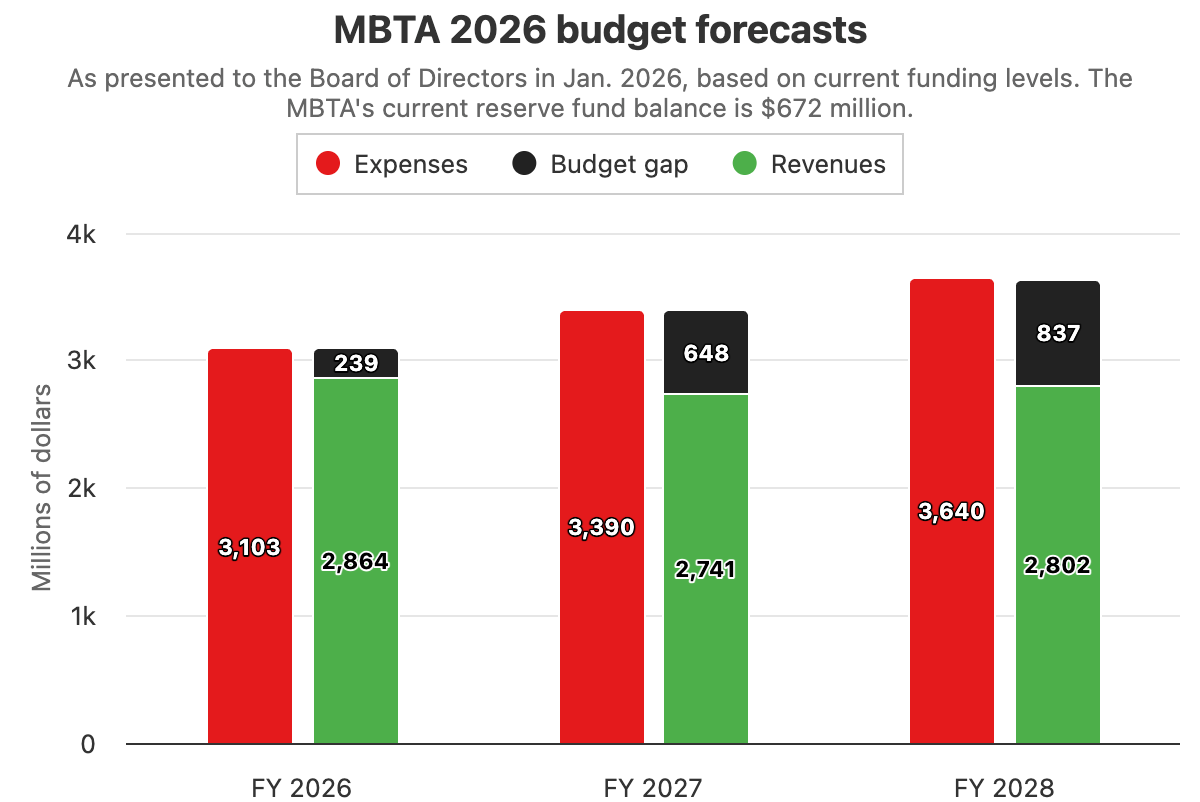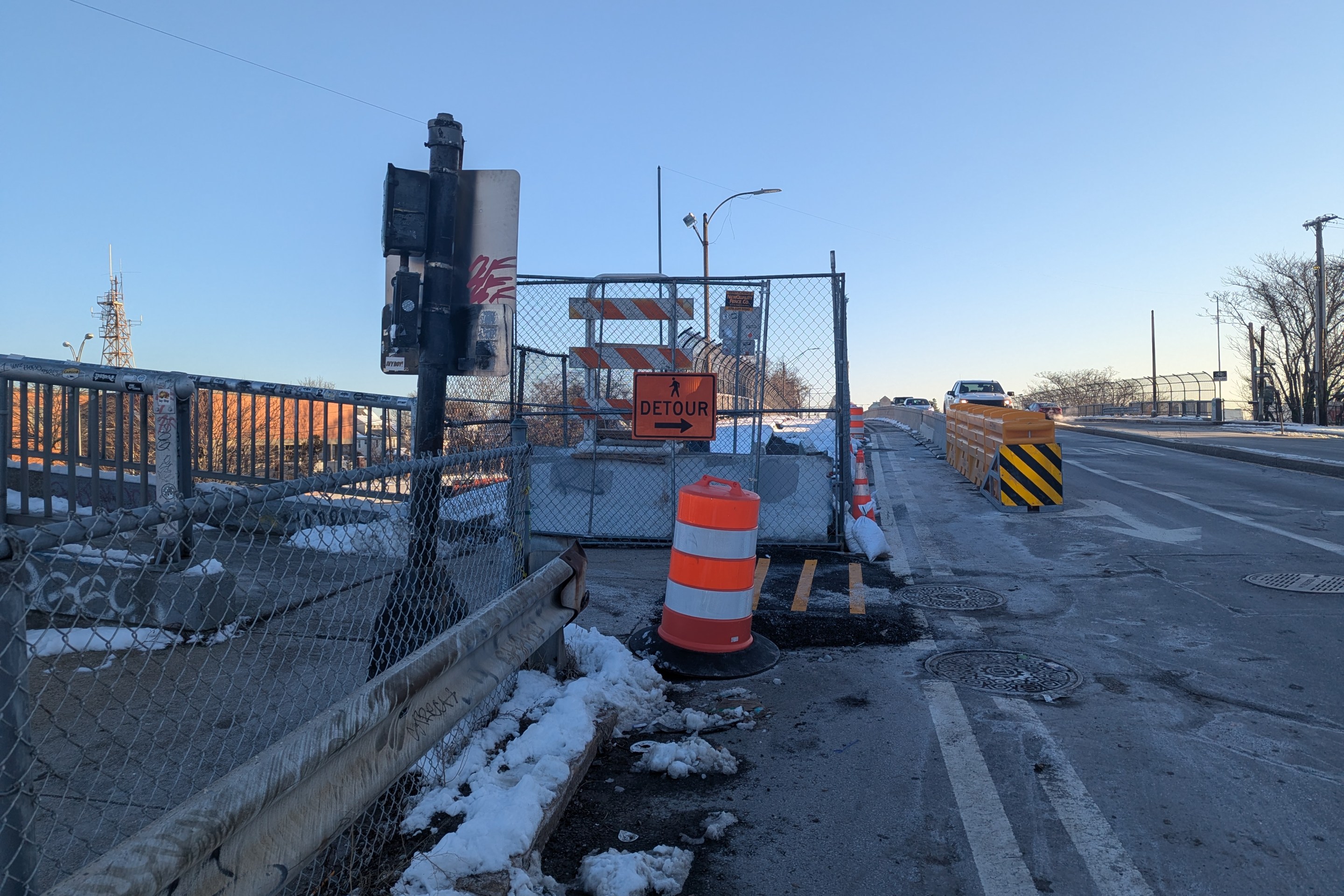Earlier this month while city officials, transit enthusiasts and advocates from around the country participated in NACTO, a conference focused on best practices for designing cities, another program focused on mobility, disability and adaptive cycling was taking place just across the Charles River in the neighborhood of Charlestown.
Here is where we met Pam Daly, a Charlestown resident with a 33-year career in textbook publishing who became paralyzed after a car crash in 1972, during her senior year of high school.
For the last three years, Daly, who has also worked as a peer mentor and support group leader with the United Spinal Association, has been biking with the Riders Club, an adaptive cycling program from the Spaulding Rehabilitation Network. The Riders Club offers programs where people with disabilities can use adaptive bicycles to go on rides.
“It's really the intersection between rehab and recreation,” says Kathleen Comfort Salas, physical therapist and Boston Coordinator for the program.
For six months out of the year, Salas’s staff and volunteers, mostly recreation therapists, meet an average of six participants for ride sessions at Spaulding Rehabilitation Hospital, located next to Thomas M. Menino Park along Boston’s Harborwalk.
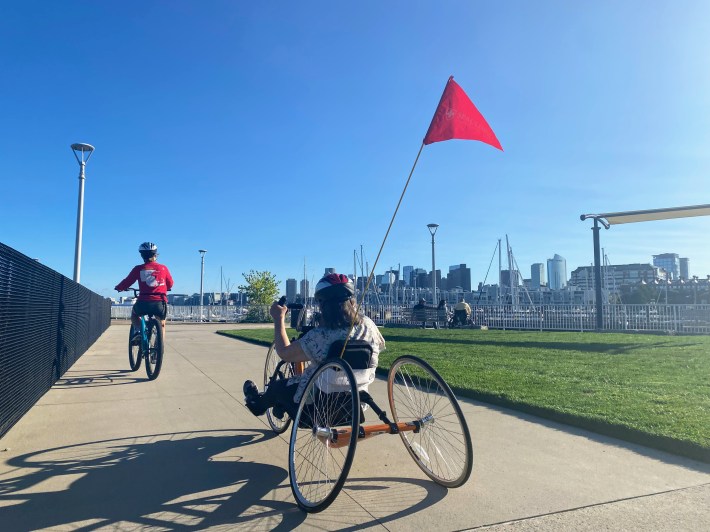
Here, folks can choose from different 3-wheel recumbent hand cycles or leg-cycles, depending on the type of seating and how upright they’d like to sit, as well as the adaptations needed for them to cycle comfortably. These details are worked out during the first visit, where newcomers go through a fitting process, and any measurements and adjustments needed are documented for staff to reference before future visits.
Details like the number of cushions needed, the size of the foam cushions used as a buffer between a participant’s leg and the bike’s metal frame, and the preferred type of hand grip are written up and recorded in a “fit form” unique to each participant.
Daly uses a lower hand-cycle with grip adaptations that allow her to grab onto the handles and turn them in a way that feels more comfortable for her hands and arms.
Together, Salas and Katie Ladlie, a staff member who moved to Boston this spring from St. Louis, Missouri for her job with Spaulding Adaptive Sports Centers, carefully transferred Daly from her wheelchair into the bike, making adjustments and adding the needed accessories like foam bits along parts of the frame and a cloth around the seat and her waist for core support.
Living and working so close to the Spaulding Rehab Center, where the Riders Club meets, Daly says she would often come across participants riding, but didn’t think to join because her life was already so busy and she felt she was getting plenty of exercise just by doing everyday things.
“Now I’m a regular..but you’d think I would have started a long time ago,” she says.
Once we were all settled into our bikes, Salas led the way, with Daly following closely behind and me pedaling comfortably at the back in a three wheel recumbent bike they let me borrow.
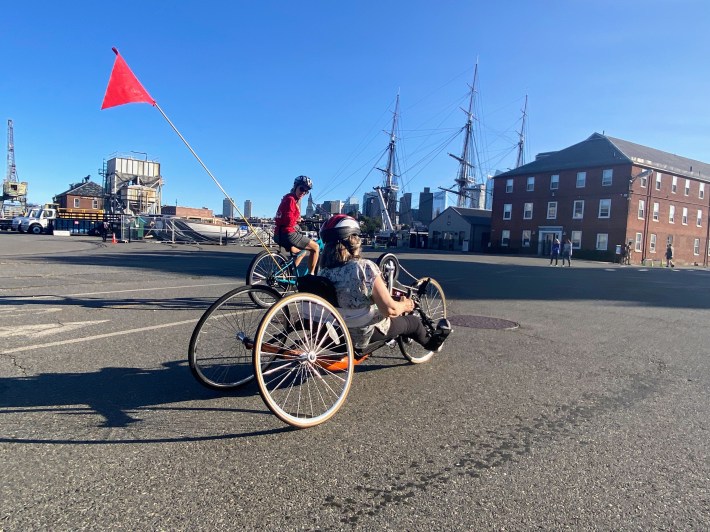
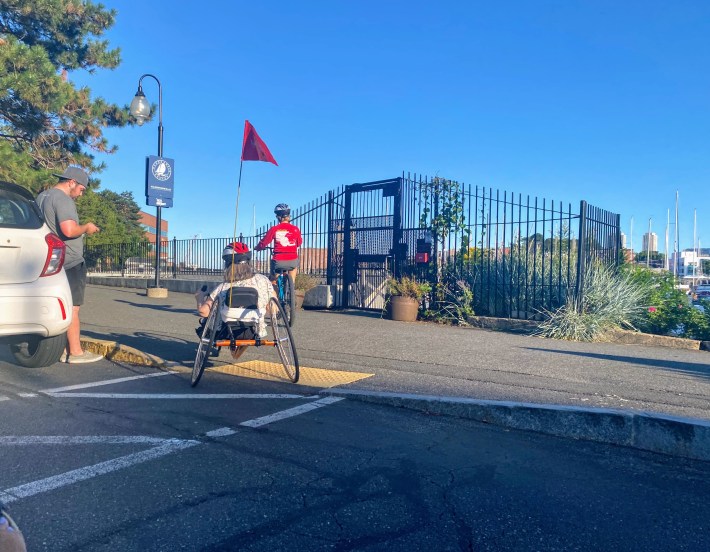
We chatted as we meandered along the Harborwalk and discussed our favorite cooking shows while we took a short break on our way back. We gushed about how much we each love the Great British Bake Off and Daly recommended Pati’s Mexican Table, a favorite of hers.
After about an hour and a half of biking, we circled back to our original meeting spot near Menino Park where Daly shared some of the reasons she enjoys coming to Riders Club. “My favorite thing is that I don't have to worry about hitting rocks or divots because I could tip over on this wheelchair very easily frontwards,” she said while pointing to her wheelchair.
“I can go wherever I want and fast. I can go places I wouldn't dare go on my wheelchair like even that bumpy walkway.. I wouldn't go in my wheelchair over there.”
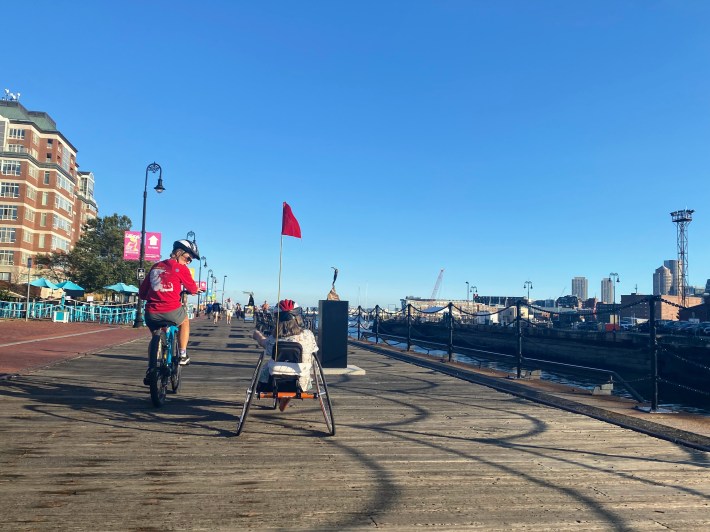
At a cost of $10 a session, the public program is open to anyone, and can serve as a great option for folks who may have gone through and completed physical therapy, “but they want to keep moving, they want to do something fun and they want to chat with people and they can't afford to buy their own bike or store it.,” says Salas.
One of these adaptive bikes can cost anywhere in the ballpark of $2,000 dollars.
Sometimes Salas provides letters of support for folks pursuing individual bike ownership through different grant programs. But first, applicants must meet certain criteria, such as having a place to store it, a way to transport it, and being able to transfer from their regular mobility device to the bike itself, possibly with the help of a slide board, a device used to facilitate transferring from one seat to another.
Living just a few blocks away from the program’s meeting spot, Daly says she feels privileged to be able to wheel over easily and partake in the programming, but she wishes more people had access to these kinds of adaptive bikes.
“It would be great if the (City of Boston) had accessible bikes like the Bluebikes,” she said.
Earlier this month, the City of Boston announced a $1.5 million rebate program for older adults and people with disabilities to purchase electric bikes as part of several recent initiatives to increase the quality of people’s experiences as they bike through the city.
See the schedule of upcoming Riders Club sessions and other adaptive sports.
